“Trapped?” hisses 40-year-old Rachel (Virginie Efira) at her boyfriend, Ali (Roschdy Zem), who has a five-year-old daughter and is returning, for the sake of their child, to his ex-wife, Alice (Chiara Mastroianni). “What’s trapped you? Nothing at all. You can have kids or not have them, whenever you like.”
This is one of the most vivid scenes in Other People’s Children, Rebecca Zlotowski’s fifth feature. It is an attractive, quintessentially French film, set in Paris and beautifully shot by Georges Lechaptois, but rather cloying and well mannered compared to the wonderfully edgy, subtle An Easy Girl (2020). Rachel's anger comes as a relief.
Zlotowski intended to adapt Romain Gary’s Your Ticket is No Longer Valid, a novel about male impotence, but instead found herself drawn to exploring the story of a woman who develops an attachment to her lover’s child, while longing for one of her own.
But has she left it too late, perhaps because of trauma involving her own mother’s death in a car crash? Those ovarian follicles are few and far between, the family doctor tells her (Frederick Wiseman, the 93-old American documentarian and theatre director, in a very odd cameo). The clock is ticking, and to make matters worse, Rachel’s younger sister (Yamée Couture) finds herself pregnant by accident.
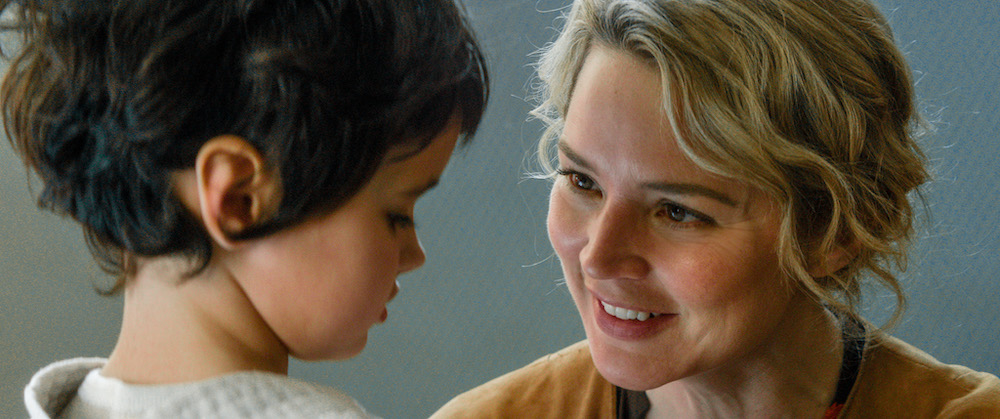 Rachel is a strong woman, a teacher at a high school, doing her best to help one pupil in particular: Dylan (Victor Lefebvre), a disadvantaged kid who’s prone to truanting. But she has faith in him, gets him an ill-fated internship with Ali, who’s a car designer, and buys him a coat (Ali gently wonders if all this altruism is narcissistic). Like Leila, Ali’s little girl (the charmingly understated Callie Ferreira Goncalves, pictured above), Dylan is another person’s child. And, of course, Rachel is soon to become an aunt. Can these relationships be enough for her? Or does the urge to become part of the “huge collective experience” of being a mother, rather than a "proud solidarity with other childless women", outweigh all else?
Rachel is a strong woman, a teacher at a high school, doing her best to help one pupil in particular: Dylan (Victor Lefebvre), a disadvantaged kid who’s prone to truanting. But she has faith in him, gets him an ill-fated internship with Ali, who’s a car designer, and buys him a coat (Ali gently wonders if all this altruism is narcissistic). Like Leila, Ali’s little girl (the charmingly understated Callie Ferreira Goncalves, pictured above), Dylan is another person’s child. And, of course, Rachel is soon to become an aunt. Can these relationships be enough for her? Or does the urge to become part of the “huge collective experience” of being a mother, rather than a "proud solidarity with other childless women", outweigh all else?
Rachel and Ali’s affair comes over as rather skin-deep and glib, full of longing glances, meaningless laughter, blissful love-making but very little originality. And her relationship with Leila never quite rings true. Nevertheless, there are pressing contemporary issues at stake here – though possibly at the expense of authentic characterisation.
Still, there are strong scenes. When Leila asks her father why Rachel is there all the time and that she wants her to go away, you empathise with Rachel’s silent pain, beautifully conveyed by Efira. On the way back from a romantic weekend in the Camargue, Leila repeats over and over, “I want to see mummy now.” By then, Rachel has fallen in love with Leila as well as with Ali. When a woman on the train remarks on the resemblance between her and the child, she simply thanks her.
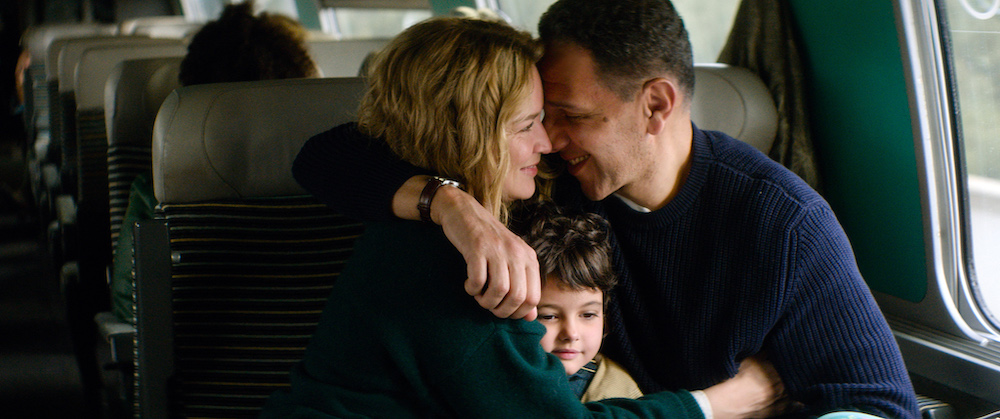 But Rachel is, as she says, “always an extra” rather than a real nitty-gritty mother. She doesn't know that you have to bring a snack when picking the kid up from judo (another mother tactfully gives her one, demonstrating female solidarity). Even so, she’s providing useful childcare for Ali, putting up with Leila’s sulks, without receiving the automatic reward of love that a parent gets.
But Rachel is, as she says, “always an extra” rather than a real nitty-gritty mother. She doesn't know that you have to bring a snack when picking the kid up from judo (another mother tactfully gives her one, demonstrating female solidarity). Even so, she’s providing useful childcare for Ali, putting up with Leila’s sulks, without receiving the automatic reward of love that a parent gets.
She’s looking forward to providing treats on Leila’s birthday; instead, she’s left alone while they go to spend the day with the grandparents. Alice, always friendly, sends her a text message, thanking her for understanding, but this seems to rub salt in the wound. There are other admirers ready to step in, including a young colleague, but although they spend time together, Rachel isn’t ready to leave Ali yet.
When the turning point comes, it’s clear that this relationship isn’t built on solid ground, but not so clear as to why, exactly, he’s going back to Alice. He doesn’t love her, she doesn’t love him but for the sake of Leila, she’s asked him to give it another go. Perhaps the decision is connected to the death of a family friend, another mother. “My choices don’t just implicate me,” he says, by way of explanation.
No, I don’t understand, replies Rachel, and there's a sad exchange with a baffled Leila when she tries to explain that, just when she'd got used to Rachel being around, she’ll no longer be part of her life. The movie ends with a light-hearted shot of her running through the Parisian streets – "Life is long," Dr Wiseman tells her encouragingly at yet another fertility check-up – to the accompaniment of that filmic favourite, last used in The Worst Person in the World: Antonio Carlos Jobim’s lovely “Les Eaux de Mars”, sung by Georges Moustaki.



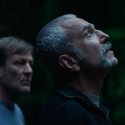


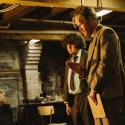
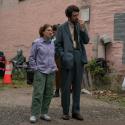
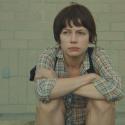



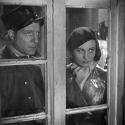


Add comment